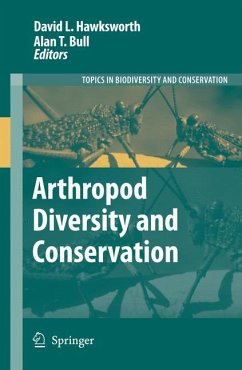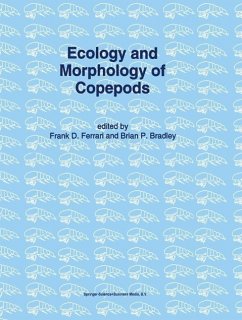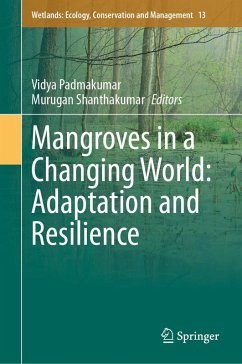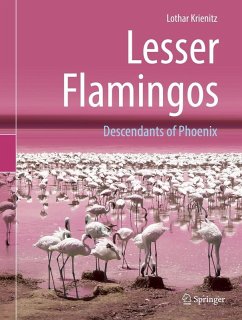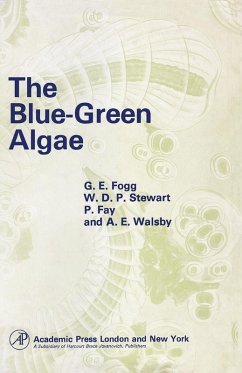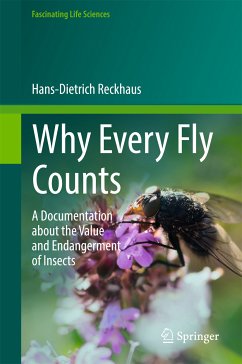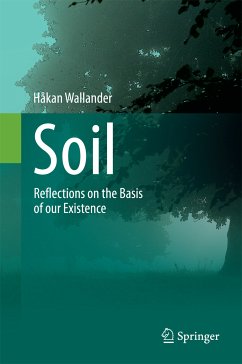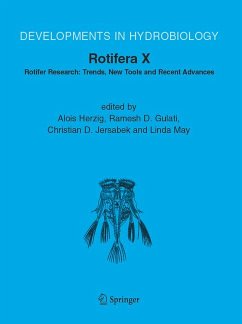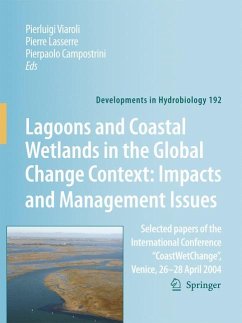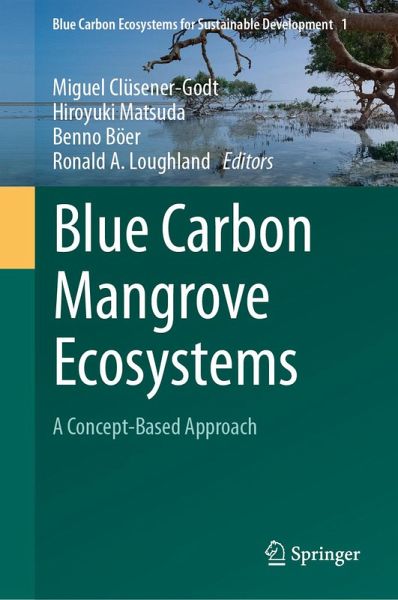
Blue Carbon Mangrove Ecosystems (eBook, PDF)
A Concept-Based Approach
Redaktion: Clüsener-Godt, Miguel; Loughland, Ronald A.; Böer, Benno; Matsuda, Hiroyuki
Versandkostenfrei!
Sofort per Download lieferbar
144,95 €
inkl. MwSt.
Weitere Ausgaben:

PAYBACK Punkte
72 °P sammeln!
Blue carbon ecosystems are of tremendous value toward the utilization of high-salinity water, such as seawater, as well as hyper-saline soils, and salt-tolerant biota for the production of biomass, for food, feed, fiber, fuel, other economic purposes, and carbon sequestration.In order to achieve the 17 SDGs, the scientific research into blue carbon ecosystems is an absolutely important element.Moreover, monitoring is needed, as well as the conservation of the remaining blue carbon ecosystems, and the restoration of lost habitat. The book will provide comprehensive scientific documentation insp...
Blue carbon ecosystems are of tremendous value toward the utilization of high-salinity water, such as seawater, as well as hyper-saline soils, and salt-tolerant biota for the production of biomass, for food, feed, fiber, fuel, other economic purposes, and carbon sequestration.
In order to achieve the 17 SDGs, the scientific research into blue carbon ecosystems is an absolutely important element.
Moreover, monitoring is needed, as well as the conservation of the remaining blue carbon ecosystems, and the restoration of lost habitat. The book will provide comprehensive scientific documentation inspiring the way forward on how to utilize saline resources in the best interest of humanity. It will try to foster the academic research and networking for land-users, politicians, development banks, innovative farmers, investors, energy- producers, and carbon-off-setters.
The papers presented in this book emanate from a conference held at the Yokohama National University (Japan) in January 2023.
In order to achieve the 17 SDGs, the scientific research into blue carbon ecosystems is an absolutely important element.
Moreover, monitoring is needed, as well as the conservation of the remaining blue carbon ecosystems, and the restoration of lost habitat. The book will provide comprehensive scientific documentation inspiring the way forward on how to utilize saline resources in the best interest of humanity. It will try to foster the academic research and networking for land-users, politicians, development banks, innovative farmers, investors, energy- producers, and carbon-off-setters.
The papers presented in this book emanate from a conference held at the Yokohama National University (Japan) in January 2023.
Dieser Download kann aus rechtlichen Gründen nur mit Rechnungsadresse in A, B, BG, CY, CZ, D, DK, EW, E, FIN, F, GR, HR, H, IRL, I, LT, L, LR, M, NL, PL, P, R, S, SLO, SK ausgeliefert werden.



